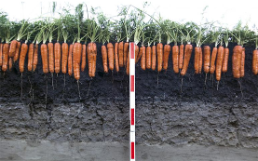
Swiss Soils: A Treasure to Protect
Seemingly motionless yet very much alive, essential for the ecosystem yet fragile: as a natural resource of great ecological value, Swiss soils are at the very heart of the concerns of Agroscope and the Swiss Soil Monitoring Network (abbreviated as NABO) (House of Switzerland, 04.12.19).
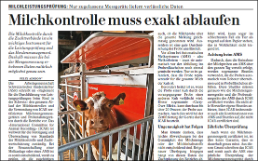
Milchkontrolle muss exakt ablaufen (PDF, 591 kB, 02.12.2019)
Die Milchkontrolle durch die Zuchtverbände ist ein wichtiges Instrument für die Leistungsprüfung und das Herdenmanagement. Deshalb müssen die bei der Mengenmessung erhobenen Daten natürlich möglichst genau sein (Schweizer Bauer, Samstag, 23. November 2019).
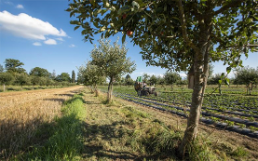
Switzerland participates in international efforts to promote sustainable agriculture
AGFORWARD, Greenresilient and PERECUSO are international research partnerships developing ways of making agricultural practices more environmentally friendly. Switzerland is participating in these three initiatives through Agroscope, the Swiss centre of excellence for agricultural research (House of Switzerland, 13.11.19).
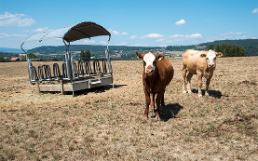
Einkommen der Bauern trotz Trockenheit gestiegen
Dürre Felder und trockene Weiden: Doch die Schweizer Bauern haben unter dem Strich vom heissen Sommer 2018 profitiert. (Radio SRF Info 3, 8.10.2019)
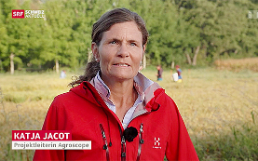
Im Rahmen eines Versuches unter der Leitung von Agroscope und BFH-HAFL pflanzten Bauern im Seeland Nass-Reis. Trotz einiger Probleme mit Unkraut und der Wasserversorgung fällt eine erste Bilanz positiv aus. Agroscope-Expertin Katja Jacot im Interview. (Schweiz Aktuell SRF 23.10.2019)
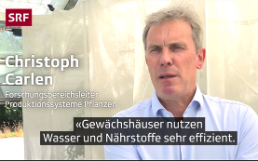
Gewächshäuser sind im Trend, aber wie grün sind sie?
Christoph Carlen von Agroscope erklärt ihre Vor- und Nachteile. Sie nutzen Wasser und Nährstoffe effizient. Aber für den hohen Energieverbrauch braucht es nachhaltige Lösungen. (SRF Kultur vom 26.09.2019)
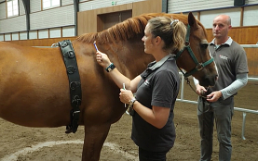
Libre accès au Haras national Suisse d’Agroscope
Anne Carrard de « La Télé » découvre différents projets de recherche du Haras national suisse d'Agroscope, dont l'équipe prend soin et met en valeur les Franches-Montagnes, la seule race équine originaire de Suisse. (La Télé, 03.10.2019)
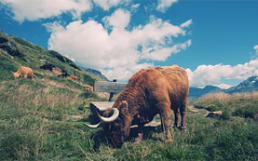
Impact de la race des vaches sur la composition des pâturages
La race des vaches qui y broutent a une influence sur la composition florale d’un pâturage : c’est le résultat d’une étude à laquelle a contribué Manuel Schneider (Agroscope) (21.08.19, CQFD - RTS).
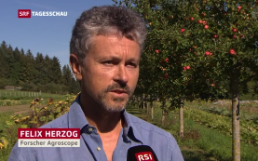
Mit Agroforstwirtschaft das Klima retten
Ein internationales Forschungsteam mit Agroscope-Beteiligung hat entdeckt, dass der CO2-Ausstoss der Landwirtschaft europaweit halbiert werden könnte dank Agroforstwirtschaft. (SRF Tagesschau, 21.09.2019)
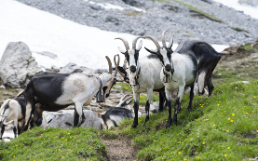
Digitale Hilfsmittel für Älplerinnen und Älpler
Das Sömmerungsgebiet in den Bergen ist oft schwer zugänglich und weit verzweigt. Deshalb setzen die Älplerinnen und Älpler vermehrt auf digitale Ortungssysteme und Sender. (Radio SRF, Echo der Zeit, 13.09.2019)
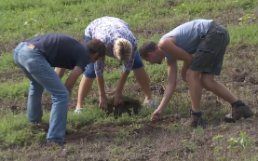
Les dégâts causés par des larves et la solution d'Agroscope
Les agriculteurs de Sembrancher tirent la sonnette d’alarme face aux dégâts des larves de hannetons sur leurs récoltes. La station fédérale de recherche Agroscope a développé un procédé de lutte biologique avec un champignon qui se nourrit de ces larves. (Canal 9, 21.08.2019)
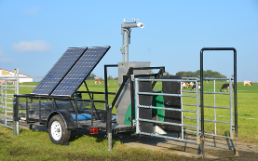
Le rot des vaches: un problème écolo
Interview avec Andreas Münger sur les recherches d’Agroscope pour réduire le méthane, un gaz à effet de serre émis par les vaches, et sur les effets des compléments alimentaires. (Radio Fribourg, Loïc Schorderet, 20.08.2019).
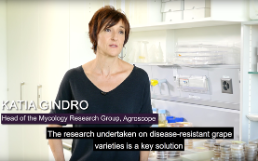
Creating disease-resistant grape varieties
Agroscope has been creating disease-resistant grape varieties for 50 years. Discover the work of Jean-Laurent Spring and Katia Gindro for a more sustainable viticulture (YoutTube, International Organisation of Vine and Wine, 16.08.2019)
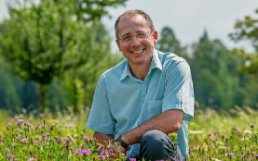
Interview avec Olivier Huguenin-Elie (Agroscope) au sujet des tendances dans la recherche en production fourragère: mélanges productifs, gestion diversifiée de la production fourragère, variétés résistantes à la sécheresse et autres thèmes. (Agri, P.-A. Cordonier, 16.08.2019).
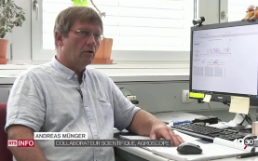
Réduire le méthane émis par les vaches grâce à des compléments alimentaires
Le journal de 19h30 se penche sur les recherches d’Agroscope pour réduire les émissions de gaz à effet de serre des bovins. Andreas Münger présente les résultats obtenus avec des compléments de graines de colza ou de lin ainsi que GreenFeed, un système mesurant les émissions de gaz à effet de serre des bovins. (RTS, Le 19h30, 03.08.2019)
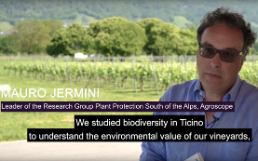
In a short video by the International Organisation of Vine and Wine (30.07.19), Mauro Jermini (Agroscope) shares some highlights of a Swiss study by Valeria Trivellone and Marco Moretti on vineyards' biodiversity that was awarded a «Special Mention» at the OIV Awards last year. (YouTube, OIV 30.07.2019)
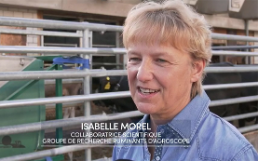
Agroscope mesure la production de méthane des bovins
Couleurs d’été présente les recherches d’Agroscope avec Greenfeed, un système mesurant les émissions de gaz à effet de serre des bovins. Le but est de trouver des possibilités de réduire les émissions de gaz à effet de serre, entre autre par l’adaptation de l’alimentation des bovins, et de développer des pistes pour une production bovine plus durable et efficiente. (RTS, Couleurs d’été, 29.07.2019, 19h03)
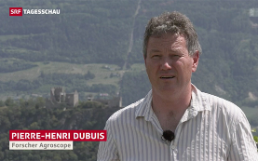
Schweiz bewilligt Sprühdrohnen als erstes Land Europas
Agroscope hat zusammen mit fünf anderen Bundesstellen ein Bewilligungsverfahren für Drohnen entwickelt, welche für die Anwendung von Pflanzenschutzmitteln eingesetzt werden. Ziel ist es, die Drohnen insbesondere als abdriftarme Alternative zu Helikoptersprühflügen der Praxis zugänglich zu machen und damit den Pflanzenschutz weiter zu optimieren. (Tagesschau, 27.07.2019)
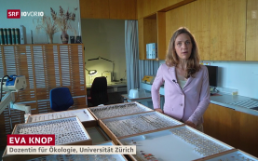
Wie sich die Lichtverschmutzung auf Insekten auswirkt
Wenn es auch nachts fast taghell ist: Eva Knop (Agroscope/Universität Zürich) untersucht, wie sich künstliches Licht auf das Nachtleben von Insekten auswirkt. Die Lichtverschmutzung führt zu einem starken Rückgang von nächtlichen Blütenbesuchern und deren Bestäubungsleistung. (10vor10, 23.07.2019, ab. Min. 23:19).
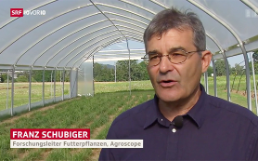
Anbau und Züchtung von hitzetauglichen Futterpflanzen
Sorghum, Luzerne, Rohrschwingel und Co.: Agroscope erforscht und züchtet hitzetaugliche Pflanzen mit dem Ziel, den Futterbau in der Schweiz auch bei Trockenheit möglich zu machen. (10vor10, 23.07.2019, ab Min. 16:50)
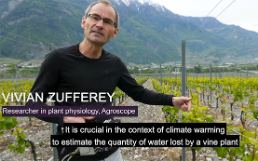
Climate change and sustainability in vineyards
In this video, Vivian Zufferey (Agroscope) explains the various experiences and research projects on water and soil undertaken by the Swiss centre of excellence for agricultural research. The objective is to help winemakers to adapt to the new weather conditions in the most sustainable way (International Organisation of Vine and Wine, 22.07.2019).
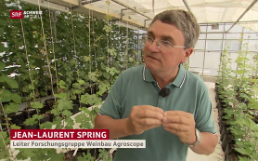
Die Wein-Profis von Changins und Pully
Die neue Winzergeneration lernt in Changins modernes Marketing und Anbau mit schonenden Mitteln. Agroscope entwickelt pilzresistente Weinsorten und hilft im Kampf gegen Reblaus und Mehltau. (Schweiz aktuell 17.07.2019)
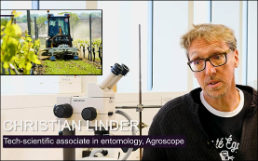
Switzerland at the forefront of sustainable viticulture
Integrated production in viticulture represents more than 85 % of the Swiss vineyard. Christian Linder (Agroscope) explains the history and thinking behind this approach to sustainable wine production (a video by the International Organisation of Vine and Wine, 12.07.2019).
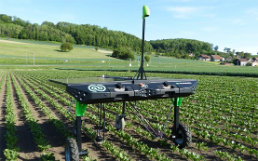
Swiss start-ups at the forefront of ‘green tech’
ecoRobotix, Vivent and AgroSustain all began life in Switzerland but have set their sights beyond our borders. These start-up companies have been working with the scientific community to develop technological innovations that enable more sustainable farming practices. This is a portrait of three Swiss start-ups at the forefront of ‘green tech’ (House of Switzerland, 03.07.19).
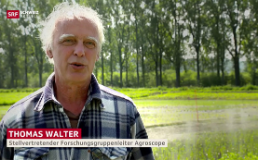
Reis aus dem Schweizer Seeland
Agroscope und BFH-HAFL führten im Seeland mehrere Versuche mit dem Anbau von Nassreis durch. Der Reisanbau soll die Biodiversität fördern und könnte für ohnehin feuchte Torfböden eine interessante Alternative zur Gemüseproduktion sein. (Schweiz aktuell, 02.07.2019).
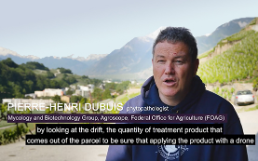
Drones to protect vineyards
Agroscope collaborates with drone experts and winemakers to develop alternative ways of applying plant-protection products against fungal diseases (International Organisation of Vine & Wine, 20.06.2019).
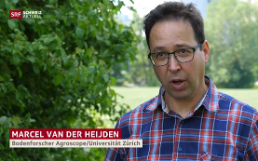
SoilYourUndies mit Agroscope
Agroscope participated in the #SoilYourUndies campaign and used buried underpants to show how active biodiversity in the soil contributes to a sustainable, productive agriculture (swissinfo.ch, 19.06.2019).
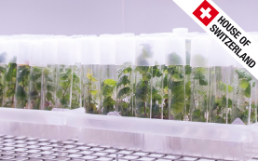
The national gene bank: safeguarding tomorrow's biodiversity
Humanity's future depends on the diversity of the species living on our planet, as they provide present and future generations with a food source and a healthy environment. 'Our Biodiversity, Our Food, Our Health' was the theme of the United Nations International Day for Biological Diversity on 22 May 2019. In Switzerland, many varieties of plants are stored in the national gene bank maintained by Agroscope(House of Switzerland, 05.06.2019).
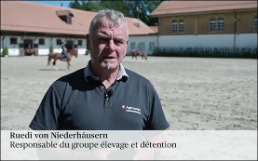
La recherche équine au service de l’agriculture
300 millions de francs suisses, c’est le chiffre d’affaires annuel dégagé grâce à la détention d’équidés, à l’élevage de chevaux et à la vente de fourrage. En tant que centre de compétences de la Confédération pour les équidés, le Haras national conduit des recherches dans les domaines de l’élevage chevalin, de la détention et du bien-être animal (Arcinfo, 17.06.2019).
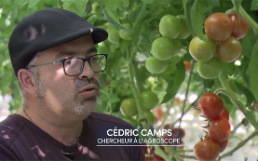
Déchiffrer le langage des plantes pour optimiser la culture maraîchère
A l’aide de capteurs disposés sur la tige d’un plan de tomates, Cédric Camps et Daniel Tran, chercheurs à Agroscope, décodent les signaux électriques émis par la plante. A l’avenir, ce dispositif devra permettre de détecter de façon extrêmement précoce carences en nutriments et autres problèmes caractérisant la production maraîchère (« Couleurs locales » - RTS, 29.05.2019, 0’ - 1’54).
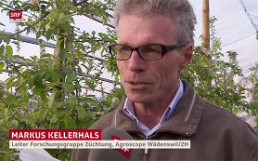
Alte Obstsorten in der modernen Obstzüchtung
Interview mit Markus Kellerhals zur Obstzüchtung bei Agroscope (SRF, Schweiz Aktuell, 30.04.2019)
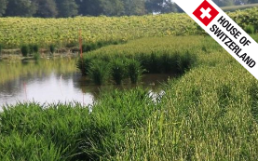
Innovative Swiss agriculture: rice, tofu and sweet potatoes
Will rice, soya beans and sweet potatoes – which originated in Asia and the Americas – become normal Swiss crops in the future? Valued for their adaptability to climate change and nutritional qualities and also as a potential source of diversification, these crops have in fact begun to be grown in parts of Switzerland and could be much more widely cultivated in the future (House of Switzerland, 24.04.2019).
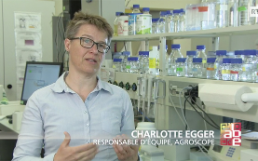
Un « estomac artificiel » pour analyser la digestibilité des protéines
Elles apportent les acides aminés essentiels à l’organisme humain : ce sont les protéines, que l’on trouve entre autres dans la viande et les produits laitiers. Afin d’évaluer la qualité de ces protéines, Agroscope a simulé en laboratoire la digestion humaine. (« A bon entendeur » - RTS, 19.03.2019, 14’14)
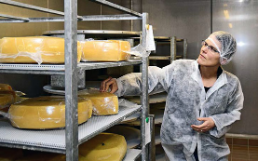
Bakterien sind Charaktersache (PDF, 444 kB, 25.02.2019)
Die Bakterienkulturen aus Liebefeld sind die DNA des Schweizer Käses. Agroscope hütet den Schatz und entwickelt neue Kulturen. Manchmal schieben die Experten sogar einen Käselaib in den Computertomografen. (alimenta 3/2019, Stephan Moser)
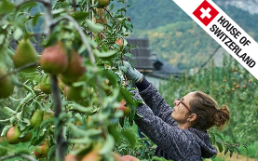
The Fred® pear – the fruit of perseverance and expertise
The perfect pear does exist. It's Swiss and it's called Fred®. Launched at the beginning of 2018, the fruit is the culmination of an 18-year breeding programme carried out by researchers at Agroscope, Switzerland's centre of excellence for agricultural research. And at the heart of the process: the desire to produce the ideal pear to satisfy growers, sellers and buyers alike (House of Switzerland, 29.01.2019).





